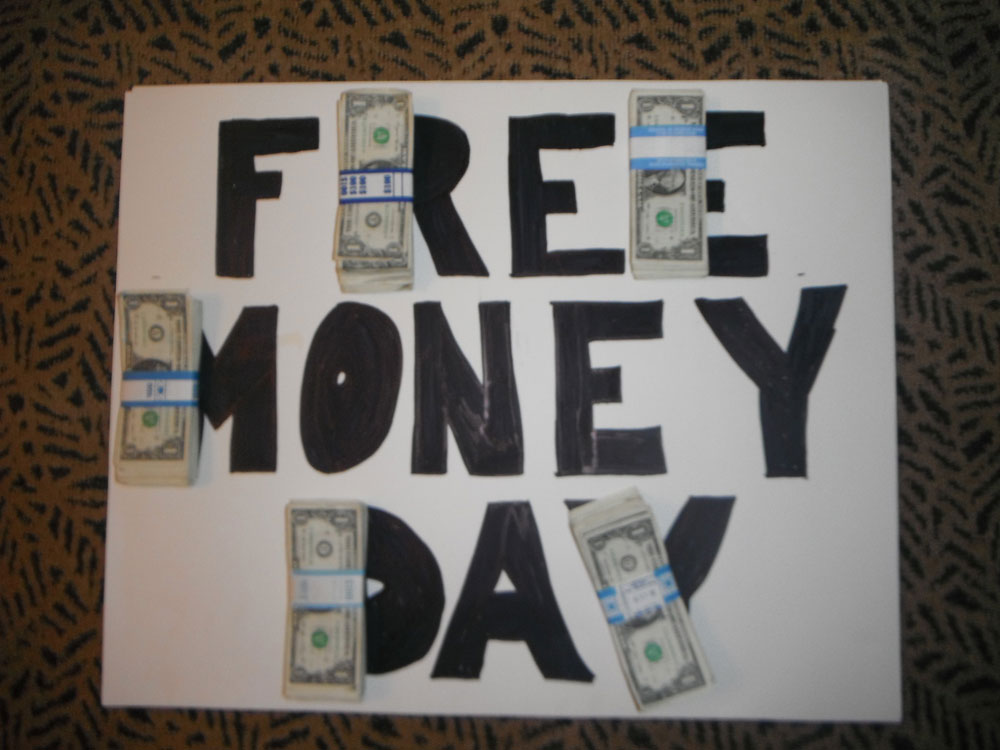
September 4, 2019; WRVA (Richmond, Virginia)
Last month, NPQ covered the basics of universal basic income policy, better known as “UBI.” In part because of the presidential candidacy of Andrew Yang, who has centered his campaign on implementing a UBI policy, the concept—once largely confined to academic circles—is gaining both greater press attention and an increased number of adherents.
Under Yang’s proposal, each American over the age of 18 would receive a monthly check for $1,000. The cost, at $2.8 trillion—one-seventh of annual gross domestic product—is high. Of course, Yang has proposed various taxes to pay for at least part of it. Another catch, notes Tonya Riley of Mother Jones, is the possibility of UBI recipients would have to give up other benefits such as Social Security, disability insurance, food stamps, and housing assistance.
And some fear that UBI could lock in class division, with poor people sustained by the cash grants. Steve Smith of the California Labor Federation tells Jeff Katz of WRVA that, “We think the future of work should be defined by working people, not tech billionaires. If there are no jobs available, you are pretty much stuck with your $1,000 a month check while the CEO of the tech company that automated you out of a job is being paid a billion dollars a year.”
Despite these concerns, support for UBI has grown in recent years. One reason is fear of future automation in the workplace, which has led many to voice their support for an “income floor” to ensure everyone enjoys a minimum standard of living from the wealth technology has generated.
In the meantime, while UBI remains a theoretical concept at the national level, it is being implemented at the local level—with fairly impressive results. For instance, Stockton, California, launched the Stockton Economic Empowerment Demonstration in February, with philanthropic backing from Facebook co-founder Chris Hughes. As Katz details, the pilot selected 125 people who live in census tracts at or below the city’s median household income of $46,033 to participate. Each one gets monthly checks for $500 on the 15th of the month. The pilot is scheduled to last 18 months and will end in July 2020. “Researchers expect to release their first round of data this fall,” Katz adds.
Sign up for our free newsletters
Subscribe to NPQ's newsletters to have our top stories delivered directly to your inbox.
By signing up, you agree to our privacy policy and terms of use, and to receive messages from NPQ and our partners.
Michael Tubbs, the city’s 29-year-old Democratic mayor, in a city that has historically leaned Republican, is a big advocate. Tubbs tells Katz that his support of UBI is motivated by his belief that poverty is immoral. “I think it is antiquated and I think it shouldn’t exist,” Tubbs adds.
The pilot includes strong ongoing program evaluation. One area of evaluation focus is on the quality of life of the participants. One program participant relates that getting $500 a month freed up time to only work one Saturday a month, instead of every Saturday, allowing the father to play with his kids on Saturdays. “It’s made a huge difference,” the father tells Katz. “Just being able to spend more time with the wife and kids, it brings us closer together.”
Beyond allowing people to regain weekends, the data from such experiments also have one other important finding—namely, that people continue to work even after receiving a basic annual income. As Katz details:
A 2018 study in Alaska, where residents have gotten a share of the state’s oil revenue every year since 1982, found the money has not shrunk the state’s labor force. The same was found in a 2010 UCLA [University of California, Los Angeles] study in North Carolina, where the Eastern Band of Cherokee Indians has shared casino revenue with its members since the mid-1990s.
As Rebecca Ayers noted in Teen Vogue last month, ultimately, getting the implementation details right is critical. As Ayers reminds us, UBI “could have different consequences depending on the specifics of any proposal or the surrounding policies put in place.”—Steve Dubb













